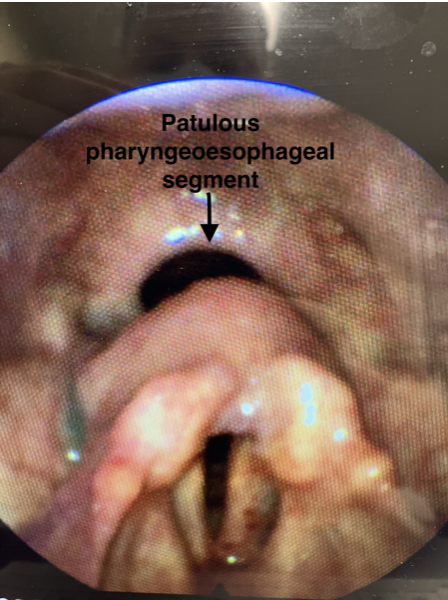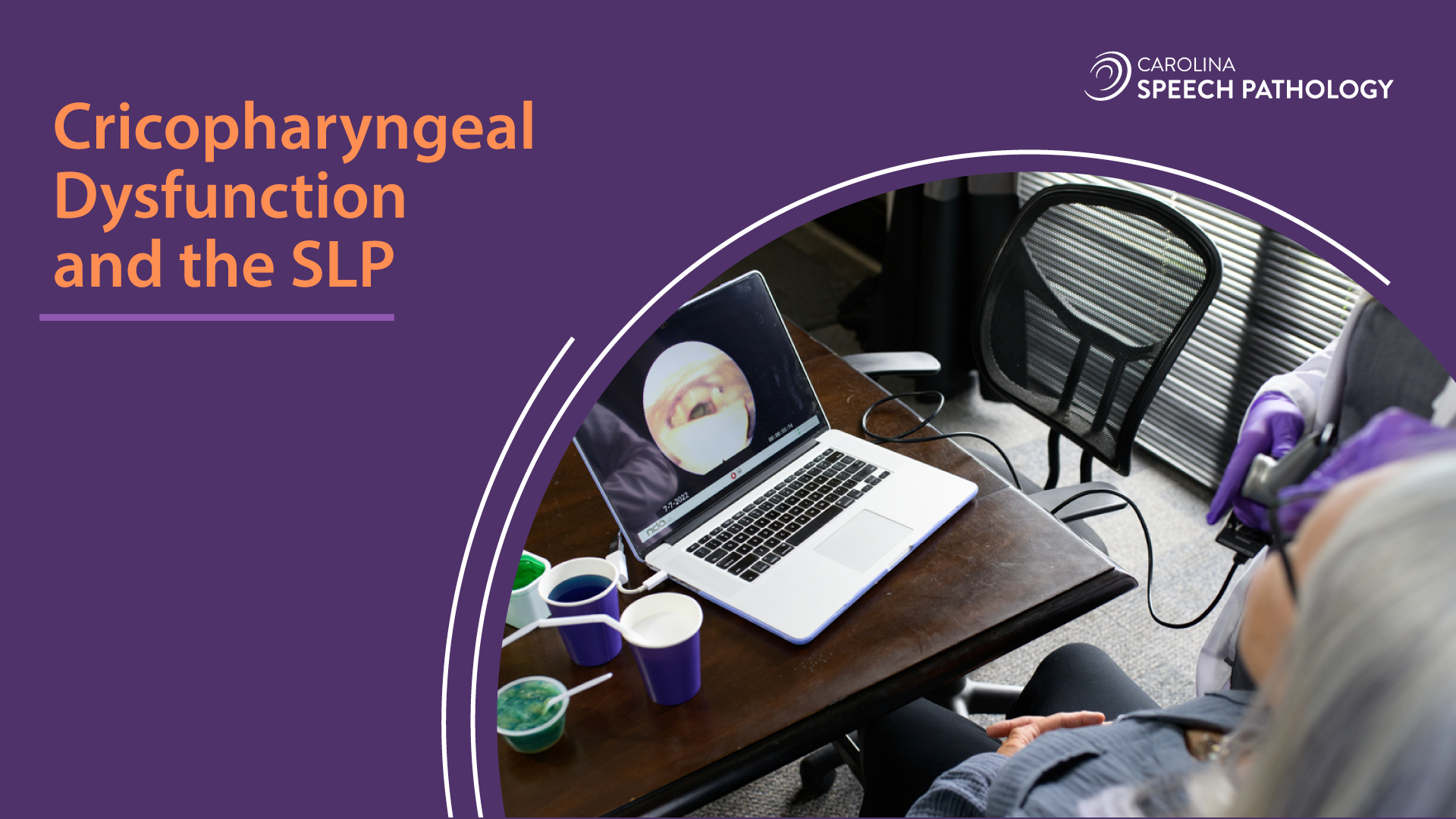 How well do you know the cricopharyngeus? This tiny tonically contracted muscle plays a big role in swallow function, and while many speech language pathologists learn about what the upper esophageal sphincter *should* do during the swallow, many of us have not learned specifics about the pathophysiology, diagnosis, and treatment of cricopharyngeal (CP) dysfunction.
How well do you know the cricopharyngeus? This tiny tonically contracted muscle plays a big role in swallow function, and while many speech language pathologists learn about what the upper esophageal sphincter *should* do during the swallow, many of us have not learned specifics about the pathophysiology, diagnosis, and treatment of cricopharyngeal (CP) dysfunction.
Williams et al, 2002, found that in 400 consecutive detailed manometric and radiographic studies in patients with pharyngeal dysphagia, 4.8% had confirmed failure of UES relaxation. Of these patients with dysphagia, etiology of failed UES relaxation was medullary disease in 56% of cases, Parkinson’s or extrapyramidal disease in 33% of cases, and 11% were idiopathic. When incomplete UES opening is observed on imaging, we cannot assume failure of UES relaxation, since this can only be confirmed by intraluminal manometry or direct electromyography.
Structural disorders such as neoplasm, Zenker’s diverticulum, cervical web, or cricopharyngeal stenosis can interfere with upper esophageal sphincter function (Cook 2006). Structural issues may be treated surgically, with dilatation, with botulinum toxin injection, or with cricopharyngeal myotomy. Additional causes of CP dysfunction include scarring from trauma, surgery, or radiation; stroke; and GERD. Stress has been reported to worsen symptoms, and posture can also impact CP function.
What are speech pathologist practice patterns for management of suspected CP dysfunction? Jones, Knigge, and McCulloch (2014) conducted a survey with members of ASHA SIG 13 to find out which interventions would be recommended for 2 cases: a patient with suspected CP dysfunction with adequate pharyngeal strength, and a patient with suspected CP dysfunction with coexisting pharyngeal weakness. The survey revealed a high degree of variability in recommendations, which reflects the need for best practice guidelines for these patients.
Just like with any co-existing condition we may encounter when working up a patient for dysphagia, the more we understand about the pathophysiology and treatment options, the better we can serve our patients through appropriate referrals and a holistic treatment plan. To help us learn more about the small yet mighty cricopharyngeaus, Dr. Ashli O’Rourke is completing a 2 hour Live Webinar on February 9th from 4:00-6:00 pm eastern, where we will learn all about the most common causes of cricopharyngeal dysfunction, diagnostic modalities, and treatment options. If you can’t make the live event, no problem! Go ahead and register, and the recording will be posted on February 10th; you will have until February 28th to complete the post-test and receive credit.

